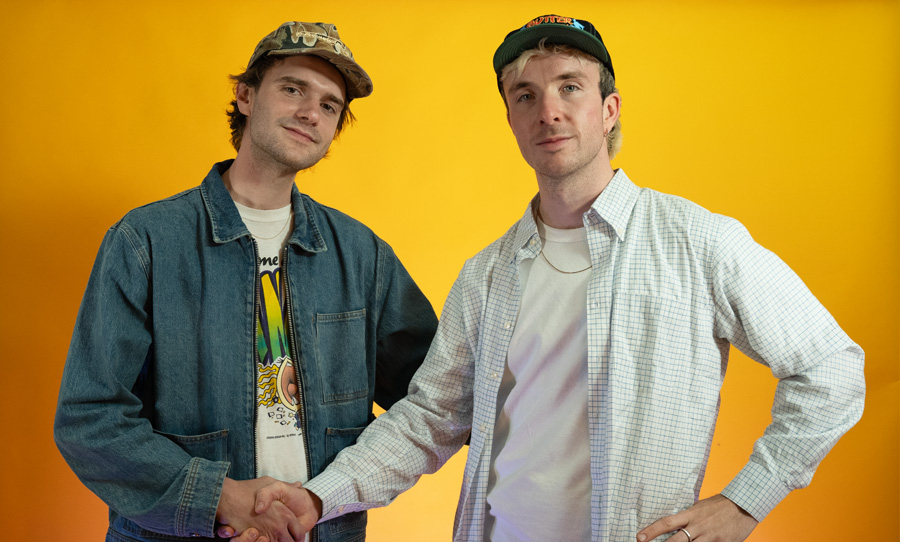Ah, TikTok. The video-based social media platform made famous by its cringe-inducing dance challenges, a global culture of trend-addicted teens, and Lil Nas X’s Old Town Road. Since its origins, the app was widely considered a pathetic excuse of an heir to sister-platform Vine, following its shutdown in 2017. However, in 2020 that all changed.
With the world suddenly forced to compress their entire lives into the four corners of their homes, we anxiously sought out ways to help us cope. The teen favourite was there, waiting. In the last year, one billion users have downloaded the app, with the vast majority attributed to the last few months. Experts are now even claiming that the app has played a vital role in maintaining society’s mental wellbeing during this time, serving as a source of refuge and positivity for users.

Is TikTok the cringeworthy app that we always thought it was? Or, has its lighthearted content actually been the saving grace for our mental health?
Launched in 2016, TikTok spent its first three years slowly rising through the dense catalogue of social media that we know today. Yet, it wasn’t until a dance challenge based off the little known track Old Town Road went viral, that both the platform and the artist would see their following skyrocket. By the end of 2019, TikTok had firmly cemented its place as one of the world’s largest video-sharing apps, simultaneously giving rise to the exposure of artists across the world.
However, the platform’s rise to prominence also came with an unshakeable reputation. Repetitive formats, a younger demographic, and *cough* inventive choreography left the app with little credibility amongst its competitors. A quick Google search of any pre-2020 TikTok related press will land you in a deep treasure trove of this collective scorn:
“This Is What TikTok Users Think About The Internet Hating Them.”
“TikTok: A platform that makes you reconsider life. It is filled with middle schoolers and high schoolers who think they are cute. It’s also filled with Koreaboos, Weeboos, Anime Wannabes, Vampire Wannabes, Furries, Emos, and People with no teeth.”
Fast forward to May 2020, where one in three UK residents currently have the app downloaded to their phones, contributing to 2 billion total downloads worldwide. Whilst the platform itself is quite secretive about its stats, mobile industry analysts Sensor Tower discovered that in the week following the announcement of British lockdown, TikTok downloads increased by a whopping 34%. This has seen the nation’s userbase surge from 278,000 to 24 million in the space of a few months.
Pandemic-related hashtags, such as #quarantine (25 billion views), #happyathome (11.5 billion views), and #safehands (4.1 billion views), have gone viral. Grandparents, parents, essential workers, celebrities, and politicians have all created accounts to stay connected. The infamous dance challenges have become household staples. TikTok has taken over the globe, with isolation right by its side.
“If it wasn’t for coronavirus, I wouldn’t have downloaded it — and the fact that I have makes me feel a little bit embarrassed,” TikTok user Hannah Baker told the ABC.
“Especially at the beginning, when the pandemic was scary, it was really nice to just be in this world of funny coronavirus-related videos, it made it all a little bit palatable and a little bit funny.”
In conversation with Vice India, Psychologist Prerna Kohli explains the science behind the attraction to the app which has united Baker and TikTok’s 2 billion other users during lockdown.
“People’s mental immunity is at its lowest right now, and we’re seeing a spike in anxiety, depression and a fear or phobia of the unknown,” Kohli described to Vice about the platform’s sudden popularity.
“The pandemic may be taking us back to an earlier stage of Maslow’s Hierarchy of Needs as a society. Assuming that we were moving towards a state of self-actualisation—which is the desire to be the best versions of ourselves, with society’s shift towards mindfulness, meditation, and seeking spirituality in daily lives—the pandemic could leave us stuck trying to fulfill needs of self-esteem or love and belonging.”
“TikTok has emerged as a safe space, where people can be authentic and real, without feeling this need to wear a social mask,” Kohli continues. “So using TikTok may be a way to overcome any unconscious feelings of a lack of self-worth or identity in these uncertain times. The app is easy to use and the content doesn’t require much talent or know-how or even literacy… It’s a quick bandaid for your boredom, where your actions are mostly rewarded and you receive positive conditioning for being yourself.”
Raising the concern that a dependence on the platform’s instant gratification could hold negative impacts for our self-esteem, Kohli also notes that as life slowly returns to its normal pace, so to will our engagement with the app.
“Using TikTok triggers a dopamine release in our brains,” Kohli continues. “Many neurologists argue that the brain areas activated when we get likes or compliments on such social media platforms are the same as when we have sex and orgasm.”
“It’s a temporary way to put ourselves in the public view when we can no longer socialise in public, a way to boost our self-esteem and distract ourselves from the war-like situation we are facing.”
The videos saturating TikTok can be mortifying, shudder-inducing, and even mindless. The app is a cyclic content farm, purely focused on the growth of share-ability and online traffic, with little thought or care provided to the videos created. It’s a mockery of art. But that’s why it’s so valuable.
In a world plagued by negativity, it’s refreshing to sometimes dive into a mindless wave of TikToks. The short videos don’t mean much, yet they are able to spark so much joy; allowing users a life-raft from which to escape the sea of panic we are currently submerged in. Whether you love or loath the app, you have to admit, TikTok has been a shining beacon of hope guiding the world through COVID-19.
“I realised once I downloaded the app that there was so much amazing content on there, all these really quick, engaging videos — and the scrolling is so addictive,” Baker noted on how the app has helped her.
“Hopefully when the pandemic is over, I won’t be so addicted — but I’m just so in it right now.”
Head over to TikTok to enjoy some carefree content. In the meantime, behold the platform’s only universally adored video:


